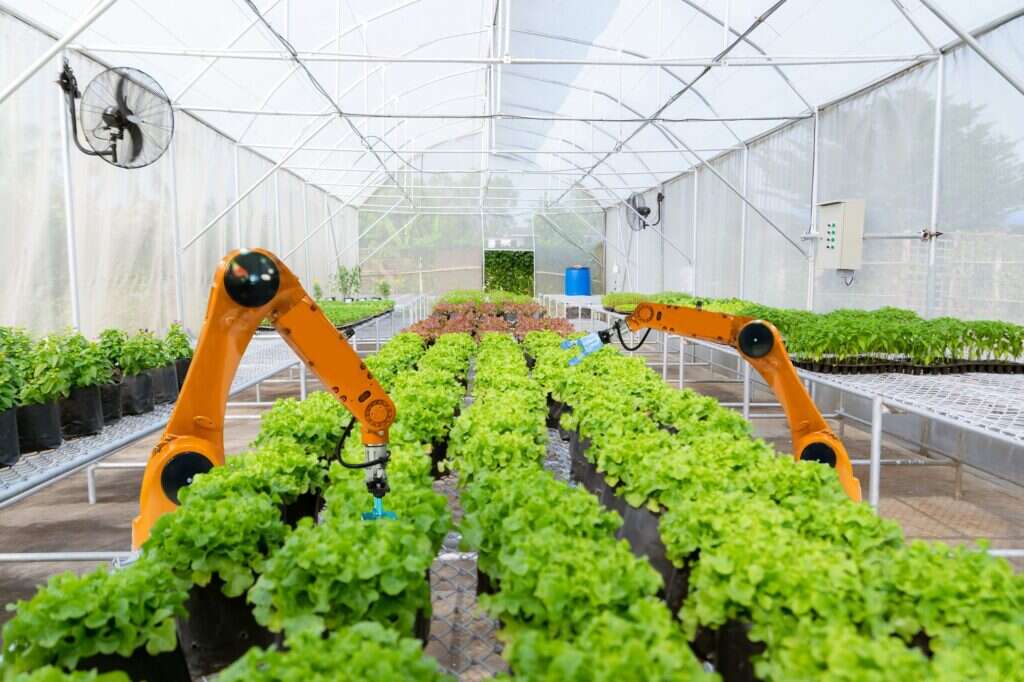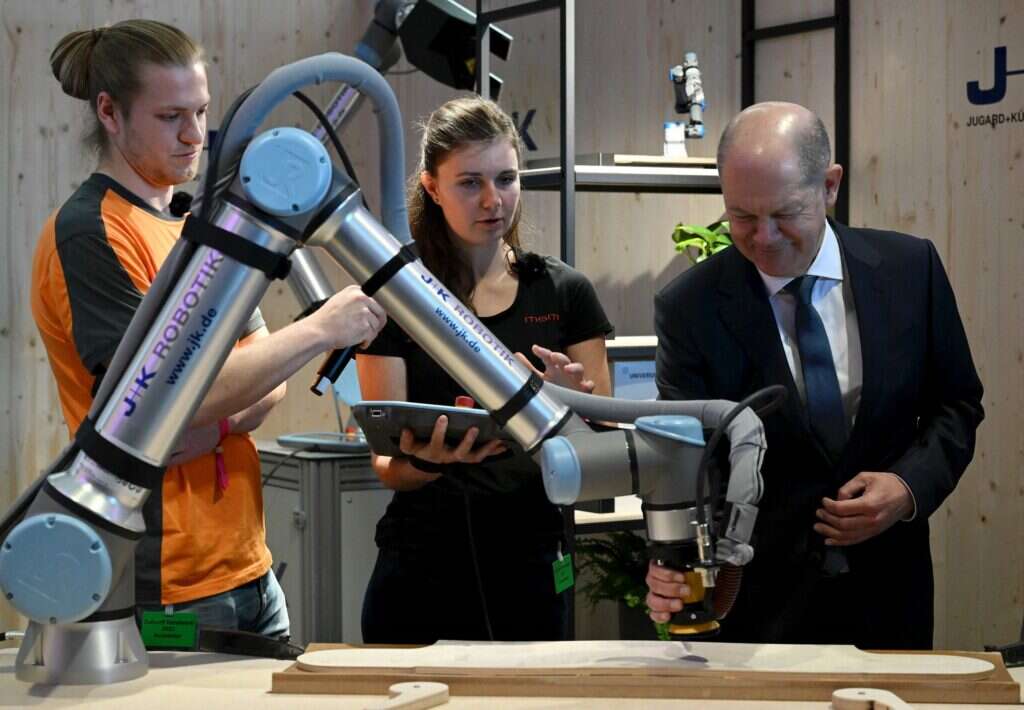Weeds can be a nightmare for farmers, starving their crops of vital nutrients. Herbicides, however, often bring their own problems by leaching toxic chemicals into local waterways and natural habitats. Smart-weeding robots, which target and annihilate individual weeds, can be a sustainable agricultural lifeline, but they need highly accurate vision and perception algorithms that work whatever the weather. And with crop yields all-important in an industry where margins are notoriously tight, how can farmers be confident that the machines won’t go overboard and pluck prized plants as well as pesky weeds?
“We are in a situation where there are a lot of solutions claiming to use artificial intelligence that land on a farmer’s desk,” says Raffaele Giaffreda, chief IoT scientist at research institute Fondazione Bruno Kessler (FBK). These AI tools might be essential. With a growing population and shrinking supply of fertile land, enhanced efficiency will be crucial to the sustainability of agriculture in Europe, says Giaffreda. Nevertheless, it’s tricky for farmers to know which interventions are actually safe and effective, and which ones are just riding the AI hype train for marketing purposes.
That’s a dilemma that the EU is trying to address head-on. The European Commission has allocated €220m to fund four ‘Testing and Experimental Facilities’, called TEFs, for AI. They’re intended to help test and certify responsible AI technologies – both in real-world physical environments and through digital simulation – and ease compliance with the controversial EU AI Act, which is currently in the final stages of approval.
Alongside his day job at FBK, Giaffreda coordinates the agrifood TEF, which aims to maximise the positive impact of digitalisation on Europe’s agricultural sector. It’s one of four distinct TEFs, with the others focusing on manufacturing, healthcare and smart city technology. Their funding is set to last for five years from 1 January 2023 — enabling them to offer subsidised services to start-ups and SMEs – but they’re also aiming to become sustainable businesses in their own right by offering fee-paying services to larger industrial clients.

How exactly do you test AI?
“Ideas are easy, execution is everything,” says Alexander von Janowski, AI certification manager at the TUV AI Lab in Berlin, one of the partners of the healthcare-related TEF. Safety concerns increasingly dominate the fraught public discourse surrounding AI, and that’s especially true in a sector like healthcare, which literally tackles matters of life or death. The EU AI act will regulate all ‘medical devices’ – a term that covers a wide range of machines carrying out tasks like imaging and diagnosis, as well as personalised prescriptions and robot-assisted surgery – as high risk, meaning they’ll be subject to a long list of strict regulatory obligations before they can enter the market.
Certification will be essential if developers want to see their devices in a hospital, but this can be a time-consuming and costly ordeal. “Complex AI models pose a challenge to existing certification frameworks,” says Von Janowski. “The current certification process is often too lengthy for the fast-paced innovation cycles of AI systems, especially in medical innovation, where there is, of course, a drive to get to market ASAP if [the device] can help improve, or even save, people’s lives.” The Health TEF aims to accelerate and streamline this process without sacrificing any of the essential safeguards – offering an “agile certification process that can cope with the dynamic nature of certain AI systems”, says Von Janowski.
Some, moreover, have expressed fears that the EU AI Act could stifle innovation in Europe. “Companies are required to certify their products against laws and regulations that are emerging […] and changing,” says Giaffreda. That’s where TEFs are supposed to come in: Start-ups and SMEs “might have bright ideas”, says Giaffreda, “but when it comes to testing and validating things like AI and robotics, this is where it becomes quite expensive.” By offering free services to emerging European developers and businesses, the TEFs are expected to shed some light on what AI solutions can – and, perhaps more importantly, cannot – do.
But how will they actually ‘crash-test’ AI? The Agrifood TEF, Giaffreda explains, will conduct experiments using an array of open-air facilities, environmentally controlled greenhouses, and scientific labs provided by its network of independent expert partners. These experiments will undoubtedly change in response to emerging regulatory concerns over the project’s lifetime, says Giaffreda, so they’re preparing for a certification regime that’s capable of responding to variations in both technical capabilities and legal frameworks.

One of the biggest advantages of the TEFs in the global market is their large size, says Joost Haugmark, one of the leaders of CitCom.AI – the TEF focused on smart city technology. It combines 36 partners from 11 different countries across the EU. “We don’t necessarily find all the competence or all the capacity in any one organisation or any one country,” says Haugmark. “By going [in] together, we can offer a diverse set of solutions.” The consortium members, which include universities, municipal organisations, and industrial bodies, offer both unique resources and unique perspectives: “Sometimes they complement each other, sometimes they may even compete a little bit, in a healthy way,” says Haugmark.
CitCom.AI, like Agrifood TEF, intends to offer a range of “bespoke tests”, says Haugmark. They’re still developing a comprehensive catalogue of services – everything from digital twins to sealed-off scientific labs – but also plan to adapt to businesses’ specific needs, and cooperate with partners to initiate innovative testing mechanisms.
Living Labs
In-situ experimentation will be particularly crucial to understanding the role that AI-powered solutions might ultimately play in people’s everyday lives, says Haugmark. As such, several cities have agreed to open up dedicated districts or communal facilities, such as sports stadiums, to be used as ‘Living Labs’, where AI tools can be tested on a small, but still realistic, scale. “You’re not just letting the robots roam free. You’re testing them in sort of a nursery first,” says Haugmark.
One of these labs is Milan Merezzate+, a housing development on a once-polluted industrial site, which is intended to showcase the impact of innovative sustainability solutions across an entire human community. There’s also the Danish Outdoor Lighting Lab (DOLL). It started out as a testbed for intelligent street lighting, but has since expanded to experiment with various so-called ‘Smart City’ solutions, including environmental monitoring, waste management, and driverless buses.
They’ve got big plans ahead, but what are they doing right now? As a new and large-scale EU project, the TEFs are inevitably facing some “teething problems”, says Giaffreda. “The European Union has launched this programme expecting the member states to sing along from the same hymn sheet, but we are uncovering detailed legislation within each of the [individual] countries that we deal with that are not as prepared to execute such a programme as you would have expected.” Giaffreda’s work isn’t particularly glamorous at the moment – mainly comprising long hours in virtual meetings trying to smooth out these initial wrinkles and start wooing future clients.
Haugmark agrees the programme is still in the “build-up phase”, and adds: “This year is where we design everything – we will be open for business on 1 January 2024.”




